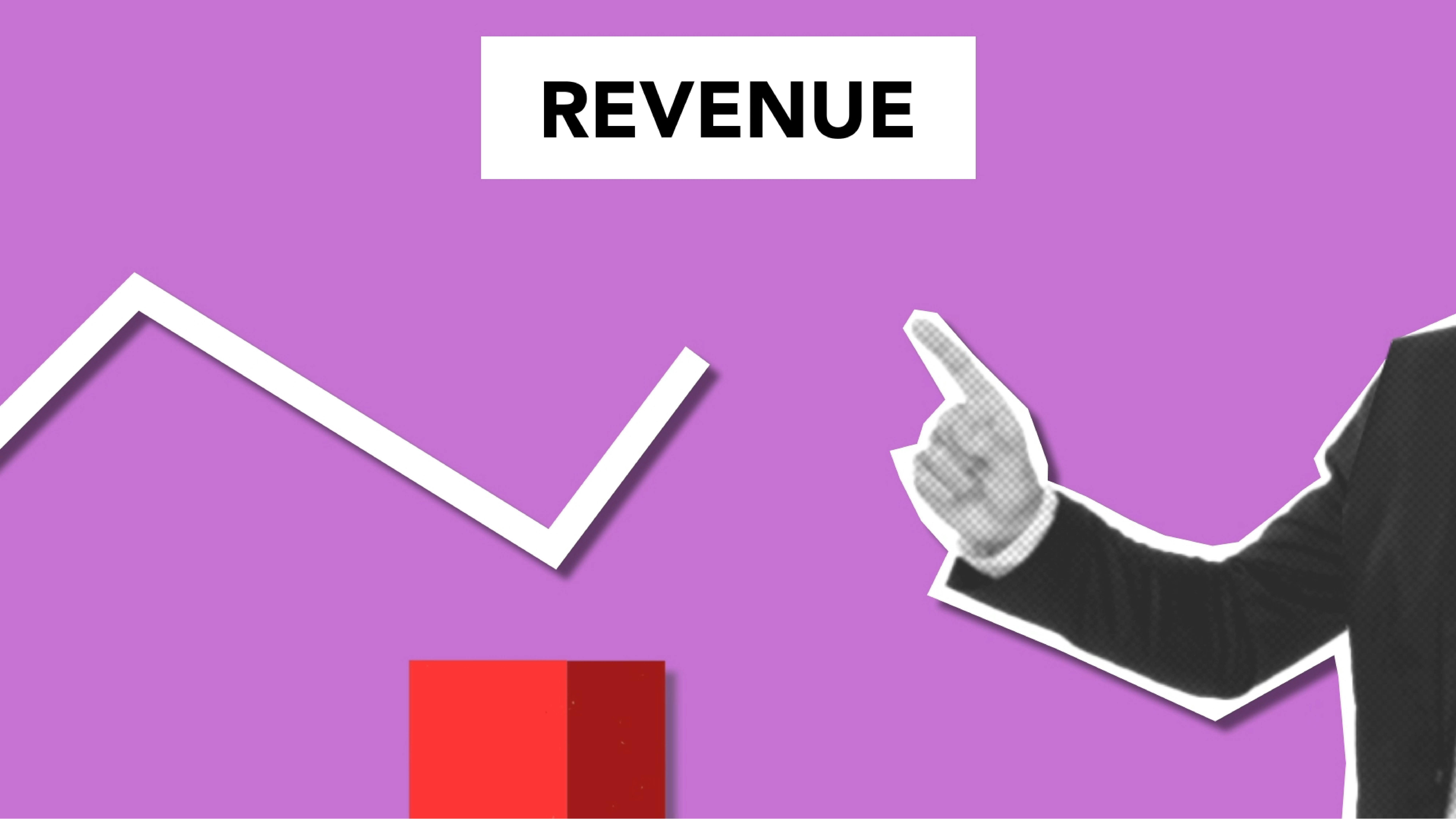When and How to Cancel a Credit Card: A Guide
Navigating the Nuances of Credit Card Cancellation: Strategies for Protecting Your Financial Future
TL;DR: Deciding when and how to cancel a credit card involves understanding its impact on your credit score and overall financial health. This article covers the ideal times to cancel a card, the effects on your credit report, strategic considerations before cancellation, scenarios where cancellation makes sense, and encourages continuing financial education and resource utilization post-cancellation.
Table of Contents:
– Understanding the Right Time to Cancel a Credit Card
– Analyzing the Impact on Credit Score and Financial Health
– Strategic Considerations Before Cancelling a Credit Card
– When Cancelling Your Credit Card Makes Financial Sense
– Summary and Next Steps in Your Financial Journey
– Encouraging Financial Education and Resource Utilization
In the intricate dance of personal finance, credit cards play a leading role, not just as convenient payment tools but as foundational pillars supporting the construction of a healthy credit history. Mastering the art of credit management can lead to favorable loan conditions, lower interest rates, and easier approval for housing or employment screenings. But as with any powerful tool, misuse or misunderstanding of credit cards can set the stage for financial difficulties. Particularly, the decision to cancel a credit card is a move that should be choreographed with careful consideration, as it can impact your credit score and financial health in significant and sometimes unexpected ways.
The Role of Credit Cards in Building Credit History
Credit cards, when used responsibly, play a pivotal role in constructing a solid credit history, an essential factor lenders consider when determining your creditworthiness. This section delves into why and how the strategic use of credit cards is a key maneuver in the arena of personal finance, particularly in boosting your credit score through the length and quality of your credit history.
A fundamental aspect to understand is the credit score itself, a numerical representation of your credit risk to lenders, which is influenced significantly by your credit history. The length of time your accounts have been open, especially your oldest account, and the average age of all your accounts together contribute to determining your credit score. Therefore, maintaining older credit card accounts is often beneficial, as they provide a longer credit history, which can positively affect your score.
Navigating the decision to cancel a credit card demands a thorough understanding of these dynamics. By knowing when to hold onto a card and when letting go is advantageous, you can make informed choices that align with your financial goals. The following sections will guide you through the considerations and strategic steps to take before, during, and after the cancellation process, ensuring your financial health remains robust in the ever-evolving landscape of personal finance.
The Role of Credit Cards in Building Credit History
Credit cards, when used responsibly, play a pivotal role in constructing a solid credit history, an essential factor lenders consider when determining your creditworthiness. This section delves into why and how the strategic use of credit cards is a key maneuver in the arena of personal finance, particularly in boosting your credit score through the length and quality of your credit history.
A fundamental aspect to understand is the credit score itself, a numerical representation of your credit risk to lenders, which is influenced significantly by your credit history. The length of time your accounts have been open, especially your oldest account, and the average age of all your accounts together contribute to determining your credit score. Therefore, maintaining older credit card accounts is often beneficial, as they provide a longer credit history, which can positively affect your score.
Curiously, not all uses of credit are equal in the eyes of credit bureaus. Regularly using your credit card and fully paying off the balance each month demonstrates responsible credit usage, reflecting positively on your credit score. In contrast, sporadically using your card or consistently carrying a balance can signal risk, potentially harming your credit score.
It’s also important to note the paradox that sometimes accompanies credit card accounts, especially those with lengthy histories. While instinct may guide you to cancel older accounts to tidy up your financial portfolio, this action can inadvertently shorten your credit history, potentially lowering your credit score. Especially if these older accounts come with no or low annual fees, the advantages of holding onto them — in terms of credit history length — can outweigh the benefits of a simplified credit card lineup.
So, before you decide to snip an older credit card from your financial toolkit, consider its history. An account that has weathered financial ups and downs with you, helping to build your credit score along the way, might be worth retaining. In cases where the annual fee of an old card becomes burdensome, a strategy might be to downgrade to a no-fee version of the card if available, thus preserving your credit history while avoiding additional costs.
In navigating the complex landscape of credit management, acknowledging the foundational role of credit cards in building a robust credit history is crucial. By thoughtfully managing your accounts, you can ensure that your credit cards remain valuable allies in your financial health, rather than burdens to be shed.

Understanding Credit Utilization and Its Impact
Credit utilization plays a pivotal role in shaping one’s financial health and credit score, a concept not everyone might be familiar with, especially those less versed in financial matters. Essentially, credit utilization is the ratio of your total credit card balances to your total credit limits. It’s a significant factor considered by credit bureaus when calculating credit scores, illustrating how much of your available credit you’re using at any given time. The general rule of thumb is that lower credit utilization ratios are better; it suggests to lenders that you’re not overly dependent on credit and are managing your finances responsibly.
When you cancel a credit card, the immediate effect is a decrease in your overall available credit, which can inadvertently increase your credit utilization ratio if you’re carrying balances on other cards. For example, if you have two credit cards each with a $5,000 limit and you’re using $2,000 of the total $10,000 available credit, your utilization ratio is 20%. However, if you cancel one card, reducing your available credit to $5,000, while still owing $2,000, your utilization ratio jumps to 40%, potentially negatively impacting your credit score.
Understanding this dynamic is crucial, especially for less financially savvy individuals, as managing credit utilization effectively can help maintain or even improve your credit score. It’s important to consider the broader implications of how closing a credit card might elevate your credit utilization ratio before making such a decision. Strategies to counteract this include paying down balances before cancellation to lower your overall used credit or judiciously using your remaining cards to maintain a lower utilization percentage.
To encapsulate, credit utilization is a vital cog in the wheel of financial health and credit scoring mechanisms. While the prospect of cancelling a credit card might seem financially prudent at first glance, understanding its impact on your credit utilization ratio is critical to ensuring such decisions bolster, rather than inadvertently undermine, your overall financial stability and creditworthiness.

Communicating with the Credit Card Issuer Directly
Contacting your credit card issuer directly before canceling your card is a critical step, offering you the opportunity to negotiate better terms that might make keeping the card advantageous. This communication can reveal options that were not previously considered, such as reduced interest rates, waived fees, or adjusted credit limits, which could change your decision calculus regarding cancellation.
Initiating the Conversation
Begin by clearly stating your intention to cancel the card. This will often prompt the issuer to transfer you to their retention department, which may have the authority to offer special deals or adjustments to your account terms. Be prepared to discuss your reasons for cancellation—whether they’re high fees, better offers elsewhere, or dissatisfaction with the service. Articulating these reasons can help the issuer tailor their offers to your needs.
Negotiation Points
- Annual Fees: If an annual fee is a primary concern, ask if it can be waived or reduced. Some issuers might offer to waive the fee for a year or offer a statement credit to offset the fee.
- Interest Rates: Credit card interest can accumulate quickly on unpaid balances. Negotiating a lower interest rate can make retaining the card more financially sensible, especially if you carry a balance.
- Reward Programs: If rewards or loyalty points are significant to you, inquire about any possible enhancements to the rewards program. This could include increased points per dollar spent or bonuses for account retention.
Rewards and Loyalty Programs
Delve into the specifics of how canceling the card might impact any accumulated rewards or status within loyalty programs. Some cards allow you to retain points for use within a specific timeframe after cancellation, while others might forfeit your points immediately. Understanding these policies can significantly affect your cancellation strategy, especially if you have a considerable amount of unredeemed rewards.
Documenting the Call
Ensure you document the details of your conversation, including the name of the representative, the date and time of the call, and any offers or advice given. This documentation can be crucial in resolving any misunderstandings or disputes that might arise later regarding the terms discussed during the call.
Summary
Direct communication with your credit card issuer can uncover alternatives to cancellation that preserve your credit health and financial benefits. Whether it’s adjusting your current terms or reaffirming your decision to cancel, this step ensures that you are making the most informed choice based on a comprehensive understanding of available options and consequences.

Avoiding High Fees
Credit cards come with a variety of fees, which can sometimes overshadow the benefits they offer. Understanding and evaluating these costs is crucial when considering whether to keep or cancel a card. The most commonly encountered fees include annual fees, late payment fees, and foreign transaction fees. Each of these can erode the value you get from your card, especially if you’re not using its rewards programs or perks to their full potential.
Annual fees are quite straightforward—they’re charged once a year for the privilege of using the card. While many premium credit cards justify their annual fees through valuable rewards and benefits (like travel perks, high reward point earning rates, and extensive insurance coverages), not all cardholders make enough use of these benefits to make the fee worthwhile. If you find yourself in this situation, reassessing whether the card is still right for you is advisable, particularly if your spending habits or financial situation has changed.
Late payment fees are another financial sinkhole. These fees are easily avoidable with responsible card management, but even occasional slip-ups can lead to charges that add up over time. If you’re regularly incurring late fees, it might be a sign of underlying budgeting or financial management issues that need addressing—potentially by simplifying your credit card setup.
Foreign transaction fees are particularly pertinent for those who travel abroad or make purchases in foreign currencies. Typically around 3% of the transaction value, these fees can inflate the cost of foreign purchases significantly. Some credit cards offer no foreign transaction fees as a benefit, making them preferable for international travelers. If your card lacks this feature and you’re frequently incurring foreign transaction fees, it might be time to explore other options.
Changes in your financial situation or spending habits can render a once-beneficial credit card obsolete. For example, if you originally acquired a card for its travel benefits but your lifestyle has since shifted away from frequent travel, the annual fee might no longer be justifiable. Similarly, if a card’s rewards program no longer aligns with where you spend your money, the card may no longer be a good fit.
When the costs associated with a credit card outweigh its benefits—whether due to high fees, changes in spending habits, or a shift in financial priorities—cancelling the card can be a financially sound decision. However, before taking this step, consider if the card issuer offers a fee waiver or a downgrade to a no-annual-fee version of the card, as this may retain some benefits and mitigate the impact on your credit score. Always weigh the pros and cons, considering both the immediate financial relief and the longer-term implications for your credit history.

Exploring Diverse Financial Learning Platforms
In today’s digital age, broadening one’s financial knowledge has never been more accessible or varied. With a multitude of platforms available, individuals seeking to enhance their understanding of personal finance have a wealth of resources at their fingertips. Online courses, financial blogs, podcasts, and webinars hosted by financial experts offer not just a diversity of medium but also a range of perspectives and advice tailored to different financial goals and literacy levels.
Online courses, for instance, provide structured learning paths for those looking to delve deep into specific topics such as investing, budgeting, or debt management. These platforms often combine video lectures, readings, and quizzes to ensure a comprehensive understanding of the subject matter. Websites like Coursera and Udemy feature courses designed by financial professionals and institutions, offering insights into complex financial concepts using layman’s language.
Financial blogs and podcasts offer more informal, yet equally informative, avenues for learning. They provide the latest tips, strategies, and news in the financial world, making it easier for readers and listeners to stay informed on trends that could affect their financial planning. Podcasts like “The Dave Ramsey Show” and blogs such as “Mr. Money Mustache” have cultivated large followings due to their practical financial advice and personal success stories, encouraging listeners and readers to take control of their finances.
Webinars, another valuable resource, provide real-time interaction with financial experts. Participants have the opportunity to ask questions and receive advice specific to their financial situations. These online seminars cover a broad spectrum of topics, from beginner money management strategies to advanced investment techniques, making them suitable for individuals at any stage of their financial journey.
By engaging with these diverse learning platforms, individuals can discover fresh insights and strategies, equipping themselves with the knowledge needed to make informed money management, investment, and saving decisions. This exploratory approach to financial education not only broadens one’s understanding but also empowers individuals to achieve their financial goals with confidence.

Leveraging Technology for Financial Management
In the modern era, technology plays a pivotal role in managing personal finances, especially after significant financial decisions, such as cancelling a credit card. Financial technology, or fintech, has revolutionized the way individuals oversee their money, offering tools that provide comprehensive insights into one’s financial health. This progression has made it possible for anyone with a smartphone or computer to take control of their finances through an array of applications and platforms.
Budgeting apps stand out as essential tools for those seeking to keep their finances in check post-credit card cancellation. These apps allow users to track their spending in real-time, set budgeting goals, and receive notifications for when they’re nearing their limits. By inputting one’s income and expenses, users can gain a clear picture of their financial situation, adjust their spending habits accordingly, and work towards their financial goals.
Investment platforms have also become increasingly accessible, breaking down barriers to the investment world that once existed. These platforms offer simplified investing, providing users with the ability to invest in stocks, bonds, and other financial instruments with ease. They often come equipped with educational resources to help demystify investing, making them ideal for beginners looking to grow their wealth over time.
Net worth trackers are another technological innovation aiding individuals in financial management. By offering a clear overview of one’s assets and liabilities, these tools can be instrumental in understanding one’s financial position. Knowing one’s net worth is crucial for making informed financial decisions, such as creating a savings plan or deciding on investment strategies.
Integrating these fintech tools into one’s financial strategy can lead to enhanced financial health. For those who have cancelled a credit card, these tools offer a way to maintain a strong financial standing and work towards recovery if the cancellation had any negative impacts. The key advantage of leveraging technology for financial management lies in the personalized insights and convenience it provides, enabling users to make more informed decisions and effectively manage their personal finances.
In conclusion, the fusion of finance and technology offers powerful tools for anyone looking to take control of their financial future. By utilizing budgeting apps, investment platforms, and net worth trackers, individuals can gain valuable insights into their financial health and make strides towards achieving their financial goals.## Conclusion: Navigating the Path to Financial Wisdom Through Credit Card Management
The decision to cancel a credit card is not to be taken lightly, given its potential impact on one’s financial health and credit score. Our exploration has guided you through the optimal timing for such a decision, highlighting scenarios where it makes financial sense, such as grappling with high fees, underutilization, or a desire to simplify your financial landscape. The strategic considerations we’ve outlined aim to safeguard your credit score and ensure any impacts are carefully mitigated.
Moreover, we’ve delved into the realms of financial technology to underscore how leveraging fintech tools like budgeting apps, investment platforms, and net worth trackers can fortify your financial strategy post-credit card cancellation. The modern financial ecosystem, enriched with technology, offers a robust framework for managing personal finances, making informed decisions, and pursuing your financial goals with precision.
As we conclude, remember that the journey towards financial literacy and independence is continuous. Every decision, including the cancellation of a credit card, should be seen as a strategic step in crafting a sound financial future.
FAQ: Maximizing Financial Agility in Credit Card Management
-
What factors should I consider before cancelling a credit card?
- Evaluate your credit card’s cost vs. benefits, consider its impact on your credit score, and assess if it aligns with your financial goals.
-
How does cancelling a credit card affect my credit score?
- It can affect your credit utilization ratio and the average age of your credit accounts, potentially lowering your score.
-
Can cancelling a credit card ever improve my financial situation?
- Yes, especially if it helps in managing high fees, reducing debt, or simplifying your finances.
-
What are the steps to minimize the impact on my credit score?
- Pay off any existing balance, consider the timing, and communicate directly with the issuer.
-
What should I do after cancelling a credit card?
- Focus on managing remaining debts, improve your credit mix, and monitor your credit report for accuracy.
-
How can technology help manage my finances after cancelling a credit card?
- Use budgeting apps for tracking expenses, invest through user-friendly platforms, and monitor your net worth to stay informed.
-
Is it better to cancel a credit card or just stop using it?
- It depends on your financial situation, though sometimes keeping it open with minimal use is beneficial for your credit score.
-
How often should I review my credit cards to decide if I should keep them?
- At least annually, to ensure they align with your financial goals and aren’t costing more than their benefits.
-
Can I cancel a credit card with a balance?
- It’s possible, but not advisable. You’ll still be responsible for paying off the balance under the same terms.
-
What are some alternatives to cancelling a credit card?
- Consider negotiating terms, switching to a card with lower fees, or simply reducing its use without closing the account.
Intricately navigating credit card management positions you strongly within the realm of savvy financial decision-making. Embracing technology further empowers this journey, transforming challenges into stepping stones towards a robust financial future. Let each step taken be informed and strategic, propelling you towards your financial aspirations with confidence and wisdom.